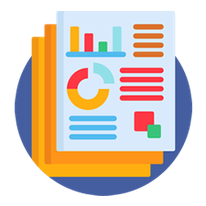Key Features:
No. of pages: 70
No. of chapters: 5
Abstract:
Most of the existing research literature on accounting in Nigeria SMEs tends to be more biased toward the use of financial accounting techniques and methods by small business owners, information technology adoption as well as research in credit accessibility for SMEs, more so only remote exists in regard of the adoption of modern accounting techniques by SMEs in Nigeria.
Many small business owners are daunted by the mere idea of accounting techniques and bookkeeping. But in reality, both are pretty simple. Keep in mind that bookkeeping and accounting techniques share two basic goals: to keep track of income and expenses, which improves chances of making a profit, and to collect the financial information necessary for filing various tax returns. There is no requirement that records be kept in any particular way. As long as records accurately reflect the business’s income and expenses, there is a requirement, however, that some businesses use certain techniques of crediting their accounts: the cash method or accrual method. Depending on the size of the business and the amount of sales, one can create own ledgers and reports, or rely on accounting (Williams et al 1999).
Elements of financial position, including property, money received, or money spent, are assigned to one of the primary groups, that is, assets, liabilities, and equity. Within these primary groups each distinctive asset, liability, income, and expense is represented by a respective “account”. An account is simply a record of financial inflows and outflows in relation to the respective asset, liability, income, or expense. Income and expense accounts are considered temporary accounts since they represent only the inflows and outflows absorbed in the financial-position elements on completion of the time period.
Buy Now
